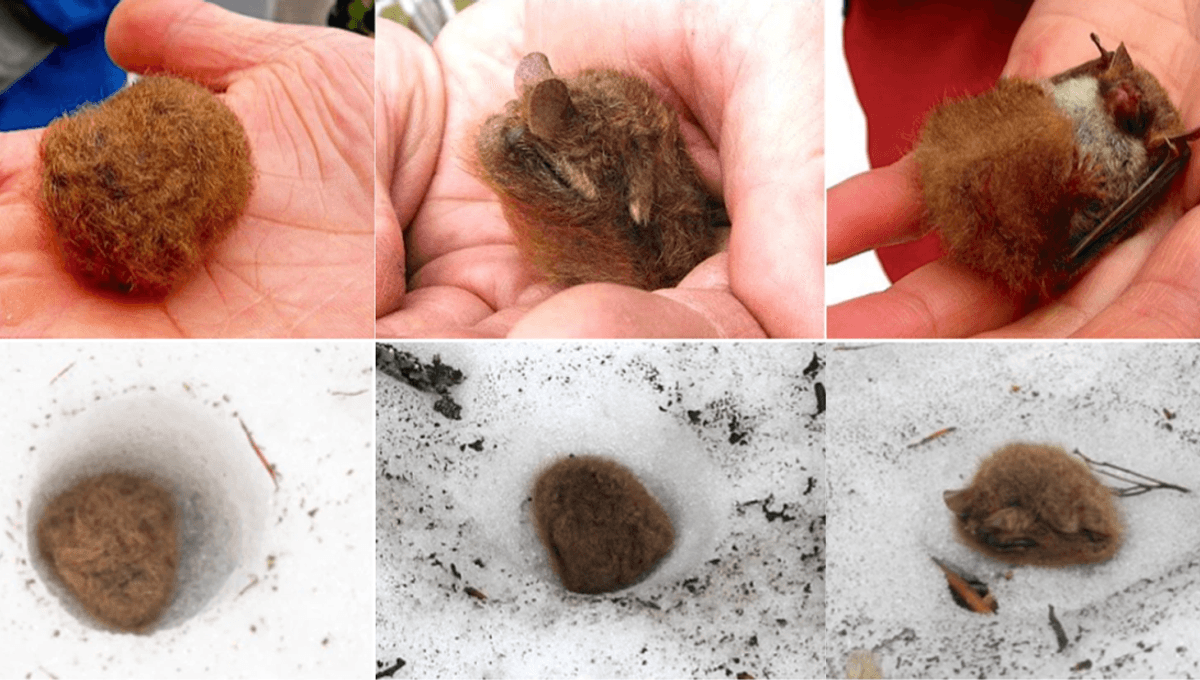
Bats are one of a handful of mammals known to hibernate in snow, with one species creating little icy bat caves for themselves when winter conditions make it tough to survive as a warm-blooded animal. When the behavior was confirmed in 2018, the Ussurian tube-nosed bat joined polar bears as the only two mammals known to hibernate in snow.
Ussurian tube-nosed bats (Murina ussuriensis) are small vesper bats that weigh about as much as two sugar cubes. They hunt for insects in their native ranges across the Kurile Islands, Sakhalin, south-eastern Siberia, Korea, and Japan.
The bats experience subfreezing temperatures during the winter months – but for a long time, nobody knew where they were waiting it out. Some assumed they must be hiding in trees or rock crevices, places they’re known to roost at other times of the year, but there had been reports of the bats being found resting on snowbanks.
To investigate, researchers got in touch with people who had reported seeing the snow-snoozing bats, and also went out in search of bats themselves. They were able to collect 22 accounts and find 37 bats to study in situ.
The bats were curling up into a tight ball so that their heads were completely tucked under the tail membrane. The posture meant some people were picking the animals up not realizing they were bats.
To address the possibility that the bats may have fallen onto the snow from an alternative hibernating position, the researchers estimated how long it would take to melt the kinds of holes the bats were being found in. Given some were as deep as 6 centimeters (2.36 inches), they concluded that it would take too long for the sit-and-sink hypothesis to explain. Thermography also showed that the animals had low surface body temperatures and only warmed up shortly before taking off after dark.
“Snow surfaces are softer and lighter at this time of the year15, so the bats easily make a small cavity in the snow,” wrote the authors. “A bat’s duration of confinement would depend on how much snow further accumulates above the bat and how long the snow takes to melt. Thus, it may last only a few days, or continue for possibly longer than half a year.”
As for why a bat might choose to snooze in snow banks, the researchers suggest key three benefits to denning like a polar bear:
- Water loss should be minimal as the animals are tucked into small snow cavities, and they haven’t got far to search if they wake up thirsty
- Predators are unlikely to search for prey in the snow because most animals avoid it, so looking would be energetically expensive and likely fail.
- The icy dens actually provide more thermal stability compared to tree cavities.
“We collected the details of those accounts and used our own observations to conclude that these bats hibernate in snow,” wrote the authors. “To our knowledge, this is the first evidence of hibernation in snow for bats, and second for mammals, following polar bears (Ursus maritimus) denning in snow.”
Vesper bats are the winners of several unusual firsts for these flying animals. Just ask this well-endowed bat that’s the only mammal known to sexually reproduce without penetration.
The study is published in the journal Scientific Reports.
Source Link: This Peculiar Mammal Hibernates In A Self-Made Icy Bat Cave